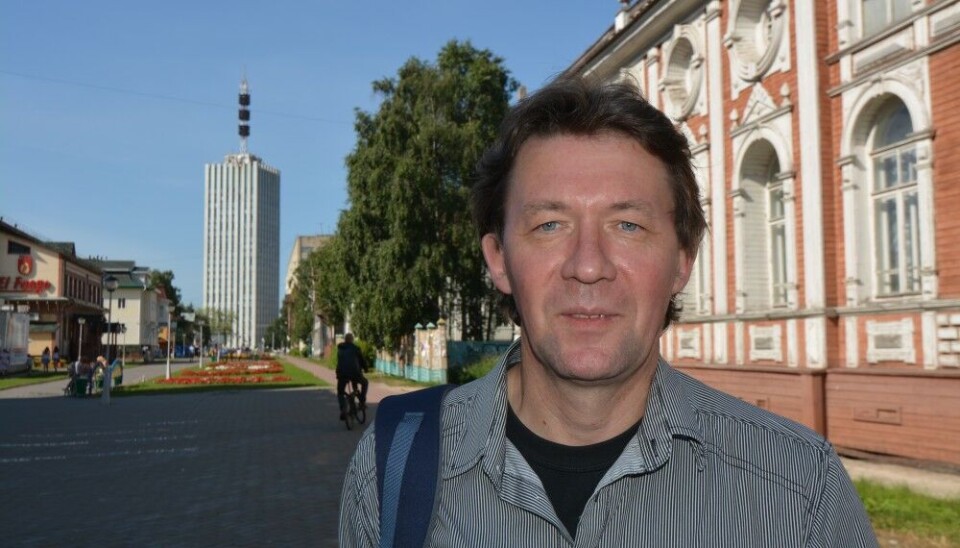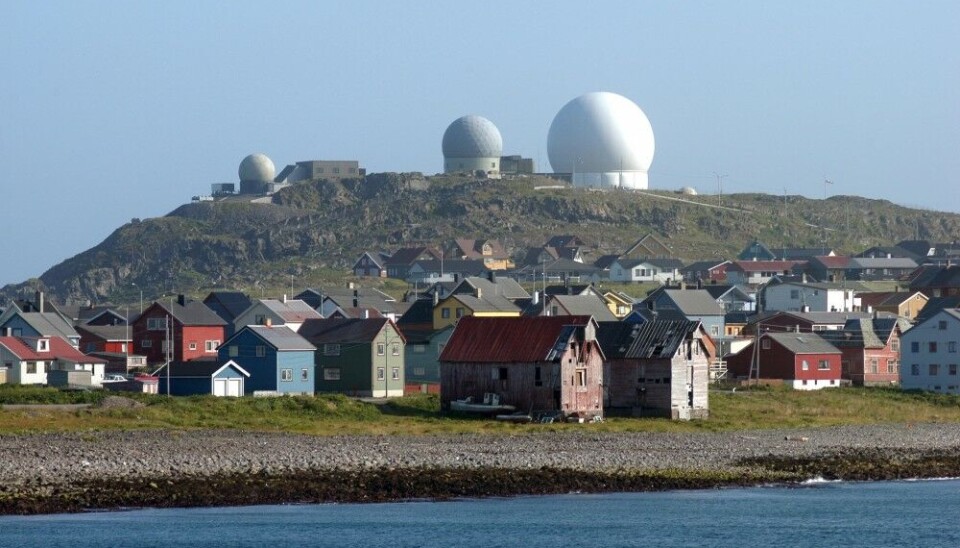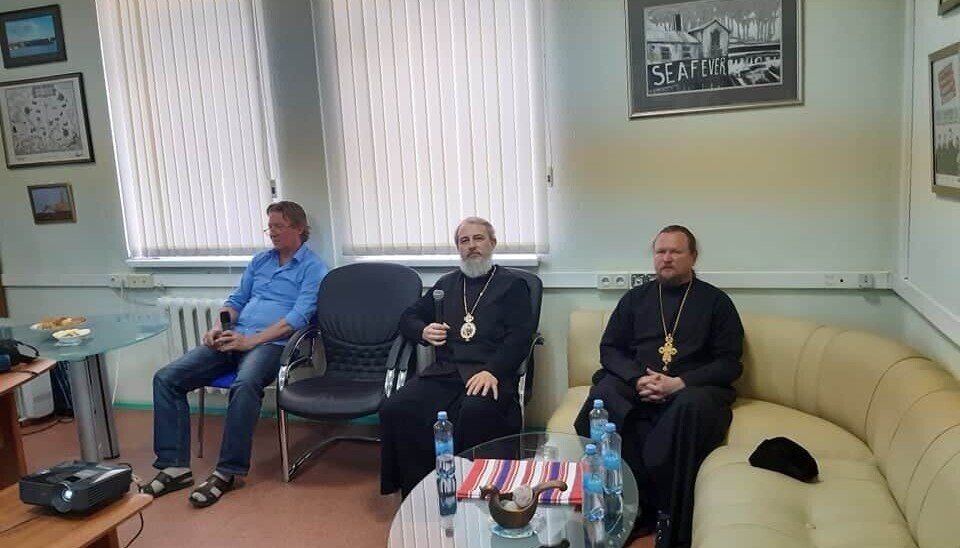
Oslo upholds payment to honorary consulate in a region where not one single Norwegian is living
The office still helps facilitating visas to Vardø, the Norwegian town where Russia's orthodox church from Arkhangelsk wanted to build a chapel with panorama view to the space radar complex important for NATO.
Norway has about 300 honorary consulates worldwide, but the one in Arkhangelsk is likely the only one serving a region with no Norwegians living. Nor are there any Norwegian business interests present.
“The honorary consulate in Arkhangelsk carries out various tasks, including consular assistance to Norwegian citizens in the consulate’s district,” spokesperson Mathias Rongved with the Foreign Ministry in Oslo writes in an email to the Barents Observer.
… but there are no Norwegians living in Arkhangelsk, we ask in a follow up.
That question remained unanswered.
Honorary Consul Andrey Shalyov confirms: “There are no Norwegians who live now in Arkhangelsk.”
And “no businesses that I know and very few visitors coming,” Shalyov tells.
From the Foreign Ministry’s 2024-budget via the Norwegian Embassy in Moscow, some 60,000 kroner are allocated to cover office expenses for running the honorary consulate in Arkhangelsk. The north Russian region is in size nearly as big as France.
Arkhangelsk was for years a stronghold in Norwegian-Russian cooperation. Home to Russia’s Arctic University, research institutions, cultural stakeholders, NGOs and regional institutions, the city with over 300,000 inhabitants played a key role in the regional cooperation with its Nordic neighbors.
Not everything ended in February 2022 when Russia started its all-out war against Ukraine.
Last month, a small group of people from northern Norway went to White June, a literature festival in Arkhangelsk. Among them were one professor and one emeritus, both with the UiT The Arctic University of Norway.
The visit stirred debate in Norway. While the professors said it was a private visit to old friends, the Russian organisers presented their attendance as representatives from the university, NRK reported.
“Sometimes Norwegians ask us to help them with Russian visa issues,” Andrey Shalyov tells.
Door-opener to northern Norway
The honorary consulate also offers a shortcut for Russians in request for a Schengen-visa to Norway.
After February 2022 it has been very difficult to be granted a visitor visa to Norway. But the Arkhangelsk consul provided help. Like last summer, when 16 Russian citizens went to the Pomor festival, an annual event in the town of Vardø.
The arrangement was financed by the Norwegian Barents Secretariat with a grant of 160,000 kroner (€13,600), the report obtained by the Barents Observer shows.
Partner in Arkhangelsk was the Norwegian Club, an unofficial structure assisted by Barents Centre, the new name of what previously were the same people working for the Barents Secretariat’s office in Arkhangelsk.
Among them is Norway’s honorary consul Andrey Shalyov.
Are you helping anyone with visa to this year’s Vardø Pomor festival?
“Yes,” Shalyov replies.
“We asked the Embassy in Moscow to allocate extra slots at the visa center for the group of people who wish to come to Vardø this summer and we helped these people with the applications procedures.”

The Norwegian Government recently decided that from May 29, Russian citizens holding a visitor visa will not be allowed to enter if the purpose of travel is tourism in Norway or any other non-essential purposes.
Marit Egholm Jacobsen, acting head of the Norwegian Barents Secretariat confirms receiving two application; from the Vardø-based Pomorakademi and the Kulturpilot, to cover costs related to participation from Arkhangelsk to the 2024 Pomor festival.
“We got the applications but have not yet taken any decisions,” Jacobsen says.
Norwegian authorities made it clear after February 2022 that all bilateral institutional agreements between Norwegian and Russian partners were put on hold.
However, the Ministry of Education and Research said researcher-to-researcher cooperation should be continued as long as the institutions consider it prudent.
The same was said by the Ministry of Foreign Affairs, encouraging continued individual private people-to-people contacts. It is the foreign ministry that grants money to the Barents Secretariat.
These guidelines still apply.
Chapel and radars
What is considered private contacts by the Norwegians seems somewhat more state-initiated from the Russian side.
“I reported to the Patriarch about the desire to build a chapel in Vardø and he was very happy about this desire, blessed it,” said Bishop Aleksandr of Plesetsk at an online meeting that took place during the pandemic when people from Arkhangelsk and Vardø couldn’t travel.
The spot in Vardø where the Russian orthodox chapel was supposed to be erected has 180 degrees panorama view towards the military radar complex.
The bishop from the nuclear missile test site and cosmodrome in Plesetsk was in the online meeting sitting in the premises of the Norwegian honorary consulate in Arkhangelsk.
Next to him was was Archpriest Aleksandr Koptev of Onega, another representative of the Russian orthodox church with a military backgound.

None of the Arkhangelsk-based actors financed in recent years by the Norwegians, and facilitated via the honorary consulate, have ended up as so-called ‘foreign agents’ or faced any other repressive actions notoriously implemented by Russian authorities against own citizens cooperating abroad.














